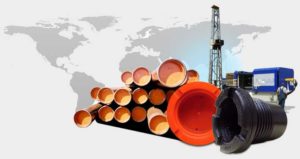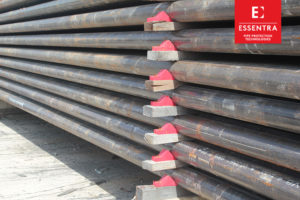Top-producing oilfield companies around the world continue to rely heavily on thread protectors. Leading manufacturers, like MSI, design durable pipe protection to keep companies’ mission-critical tubular goods in prime condition. In fact, a pipe protector is the only single investment that produces larger returns relative to its size. Even more, they’re extremely affordable compared to the value of the service they provide for operating companies.
Despite that, some companies are tempted to buy reconditioned products to cut costs. While this may seem attractive, buyers can only make informed decisions by understanding the associated issues.
What are Reconditioned Thread Protectors?
Reconditioning is a process that some oilfield recycling companies use as a means of reselling used protectors. These companies take used and discarded protectors and then clean the ones that appear to remain in good condition. After that, they carefully inspect them for reselling. Customers will then purchase reconditioned protectors to cover their pipe threads and pipe ends.
A company’s immediate perceived benefit is that they can save on overall investment costs by purchasing ‘used’ instead of ‘new’. However, associated risks in purchasing reconditioned thread protectors may outweigh the initial cost savings.
What Should Companies Know About Reconditioned Thread Protectors?
When companies buy new protectors for pipe threads, they have the surety of product quality and suitability. Contrarily, if your company purchases protectors that have been used and offered for resale, this action comes with many uncertainties. In fact, it’s important that companies are aware of three main issues behind reconditioned pipe protectors…
1. Reconditioned Isn’t ‘Like New’
By definition, to recondition something is to condition again; to overhaul or renovate. What most companies aren’t aware of is that thread protectors cannot ever be reconditioned to their original state. In fact, the ‘reconditioned’ name suggests a higher quality of thread protection that truly is not available. The truth is, these protectors are not being rebuilt, repaired, reconstructed, or retested. Recyclers are simply cleaning them thoroughly and testing to ensure that they can still perform.
2. Storage History
You can never really know or confirm how protectors are stored prior to the reconditioning process. If operators stored the used protectors outside, were they exposed to harsh elements? Did the temperatures change drastically in the location where they were stored? Unfortunately, you will never know how they stored the protectors. These factors are all critical to the effectiveness of protectors, yet there is no way to guarantee their performance.
3. Application History
Similar to storage history, the information you may need on a thread protector’s previous usage is also unavailable. Were these thread protectors subjected to impacts? You may also wonder if the threads held up to the standards of new protectors. Even if they appear to be in good condition, how can you be sure they will hold up for additional use? Again, the answer is painfully clear. Because you don’t have access to their testing, QA approval, and usage, you take a great risk in purchasing used protectors. In fact, the cost of a failed thread protector during operations is far greater than investing in new ones.
What Are the Risks?
When your company chooses to purchase used thread products, you ultimately don’t have much to go on concerning their true performance. Consider just a few of the associated risks:
- Damage to pipe threads during impact
- Potential corrosion during pipe storage
- Breakage of protectors during installation
- Potential backing off of protectors after installation
These are just some of the possible risks that companies take when they choose not to purchase new thread protectors. Also, you should keep in mind that there could be additional risks to your larger operation.
Consider True Peace of Mind
There’s no doubt that reconditioned protectors offer immediate savings. However, when you buy new protection products, you rule out those unknown key problems that can come with reconditioned products. As such, companies can rest easy knowing that their pipe threads are covered with high-quality and efficient pipe thread protection.
MSI Pipe Protection Technologies will continue referring customers to recyclers who will recycle used thread protectors. Some of those companies may also offer the reconditioned pipe protector service. While MSI doesn’t recommend purchasing these items, we do encourage companies to always consider proper recycling practices only. Likewise, we also encourage companies to invest wisely by purchasing new protectors that will guarantee proper protection and performance.
Connecting with MSI is easy, especially when you’re looking for new, reliable thread protectors and more. Request a quote online, or call us toll-free at 1-877-276-9208.




